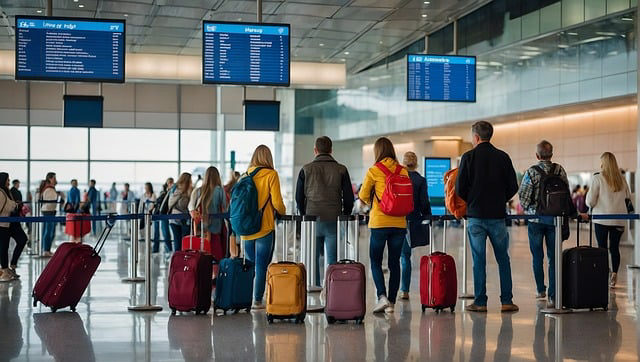The Department of Homeland Security (DHS) is proposing an expansion of its facial recognition technology to include the scanning of migrant children’s faces. The proposal has sparked a debate over privacy concerns, as the department seeks to extend its current use of facial recognition beyond adults and teens to children under the age of 14.
DHS has been utilizing facial recognition technology primarily for adults and teens as part of its border security measures. Since last year, Customs and Border Protection (CBP) has employed a mobile app allowing migrants over the age of 14 to submit selfies before entering the United States. Now, DHS aims to include younger children in this process to improve identification and tracking at the border.
Seth Hall, a representative of San Diego Privacy, expressed concerns about the potential unintended consequences of this expansion. In an interview with NBC 7, Hall emphasized that while DHS claims its technologies operate within legal bounds and with a commitment to protecting privacy and civil rights, the inclusion of children raises significant ethical questions.
One of the primary concerns, as highlighted by pro-migration advocate Pedro Rios, is the issue of consent. Rios pointed out that children, especially those under 14, are unable to provide informed consent for such measures. This inability complicates the ethical justification for scanning their faces, raising worries about the long-term implications of collecting biometric data from minors.
The debate around this proposal also touches on broader issues related to privacy, data security, and government surveillance. Critics argue that expanding facial recognition to children could lead to further erosion of privacy rights, particularly for vulnerable populations such as migrants. They call for greater scrutiny and transparency in the development and deployment of such technologies.
DHS, however, maintains that its use of facial recognition is essential for national security and that all procedures are designed to be in compliance with legal standards. In a statement to MIT Technology Review, DHS officials stressed their commitment to protecting privacy and civil rights while seeking to enhance the efficiency and accuracy of their operations at the border.
As the proposal moves forward, it is likely to face continued scrutiny from privacy advocates, legal experts, and the public. The balance between security and civil liberties remains a contentious issue, particularly when it involves the rights and protection of children.
Image by Gerd Altmann from Pixabay



